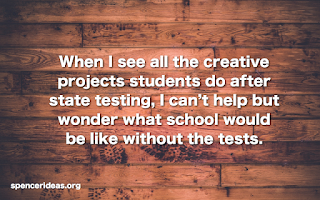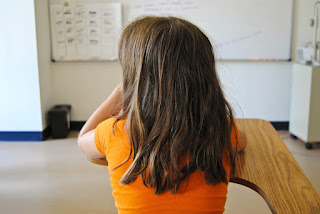Wednesday, June 10, 2015
Sunday, June 7, 2015
Blog Post #4
Asking and answering questions, tells me teachers ask questions for several purposes and for that reason they may formulate their questions in various ways. In reading, Asking questions, it states that asking questions is a natural way of communication but also an important tool in which most teachers have at their disposal. Every question demands a response. There are different types of questions. One type is display questions, these are designed to elicit learners' prior knowledge and to check comprehension. Another type of question is referential questions. These require the learner to provide information, give an opinion, explain or clarify.
Project #15
- WolframAlpha is not a search engine, it's an engine for computing answers and providing knowledge. It works by using its vast store of expert-level knowledge and algorithms to automatically answer questions, do analysis and generate reports. WolframAlpha is a great engine for mathematical problems and answers, in my opinion. New to Wolfram|Alpha?, is a great way to learn more about the engine.
- Dogpile is a search engine that fetches results from Google, Yahoo! and Yandex. Dogpile was created to return all the best results, from different search engines, faster. About Dogpile, teaches you more about the search engine. It's actually quite easy, you just type exactly what you are looking for in the search box. You would use Dogpile if you wanted to see which site had the best results without actually using more than one site.
- Duckduckgo is a search engine similar to Google there are little things that makes this search engine different. Duckduckgo has features like 'zero-click' information, meaning all your answers are found on the first results page. Duckduckgo.com helps to clarify what question you are really asking and the ad spam is much less than Google. I like the different features it has and I'm going to start using this search engine more.
- Bing is the second most popular search engine today. Bing used to be MSN search until it was updated in 2009. Known as a 'decision engine' , Bing tries to support your researching by offering suggestions in the leftmost column. It also gives you various search options across the top of the screen. Things like 'wiki' suggestions, 'visual search', and 'related searches' might be useful to you.
- Yippy is a Deep Web engine that searches other web engines. Deep Web pages are usually harder to find by conventional search. That's why Yippy is very useful. If you are searching for obscure hobby interest blogs, obscure government information, tough-to-find obscure news or academic research, then Yippy is your tool!
- Webopedia is one of the most useful websites on the world wide web. Webopedia is an encyclopedic resource dedicated to searching techno terminology and computer definitions. It is absolutely a perfect resource for non-technical people, much like myself, to make more sense of the computers around them.
- Yahoo! is several things: it is a search engine, a news aggregator, a shopping center, an emailbox, a travel directory, a horoscope and game center, and more. This web portal makes this a very helpful site for Internet beginners. Searching the web should also be about discovery and exploration, and Yahoo! delivers that in wholesale quantities.
- Mahalo is one 'human-powered' search site employing a committee of editors to manually sift and vet thousands of pieces of content. This means that you'll get fewer Mahalo hit results than you get at Bing or Google. It also means that most Mahalo results have a higher quality of content and relevance.
C4T Post #1
In the blog, Want Creative Classrooms? Scrap the Tests., John Spencer talks about how most people think teachers just show movies at the end of the year. He mentions that it's not like that at his school. There are children bursting with energy, testing paper airplanes and putting final touches on their movies. He also mentions that four weeks ago the school was totally different. Teachers and students were stressed prepping for standardized test. Spencer believes that if we take testing away you will see schools developing. I replied with the comment, " I like the idea of taking testing away. In my opinion, kids aren't learning because they want to learn but because they have to learn to pass standardized test. Without the enforcement of test they would be open to becoming more creative and actually wanting to learn. Children are more motivated towards the end of year because the stress of being forced to learn is over. "
In the blog post, What happens to student engagement when you take away grades?, talks about what happens to student engagement when you take away grades. His answer in one word is nothing. He mentions that students are still going to have distractions. They may not be distracted by things in class, but things in the world. Some are going to be bored and some are going to hungry. He says with the lack of grades you would think students wouldn't care about the work. That's not true, students who want to learn and are willing to learn will learn whether grades are involved or not. I replied with the comment, "When asked, "What happens to student engagement when you take away grades?", my answer would have definitely been the same! I believe that nothing changes. Children who don't want to learn will not put any effort towards learning whether you're grading them or not. Then there will be students who want to learn no matter the circumstances.
Wednesday, June 3, 2015
Blog Post #3
Peers are people in your age group, sometimes your friends or classmates. Editing is correcting someone's work. Peer editing is a great way to learn from your mistakes. In my opinion, when critiques come from your peers, it's a lot easier to deal with and fix the problem. In the video and slideshow What is peer editing? and Peer edit with perfection tutorial, I learned that there are three steps to peer editing. The first step is compliments. You don't want to discourage them and compliments are the best way to do that. The second step is suggestions, offering them a little advise is always helpful. The third and final step is corrections. Make sure you correct their mistakes so they know what they're doing wrong and will be able to correct themselves in the future.
In watching, Writing Peer review top 10 mistakes, I learned that there are so many critique errors. When trying to correct someone you should take the time to actually tell them what they are doing wrong. You shouldn't offend anyone when correcting their work. Peer editing can be a great way to help someone but it can also be very cruel if you don't care about what you're doing.
Subscribe to:
Comments (Atom)



